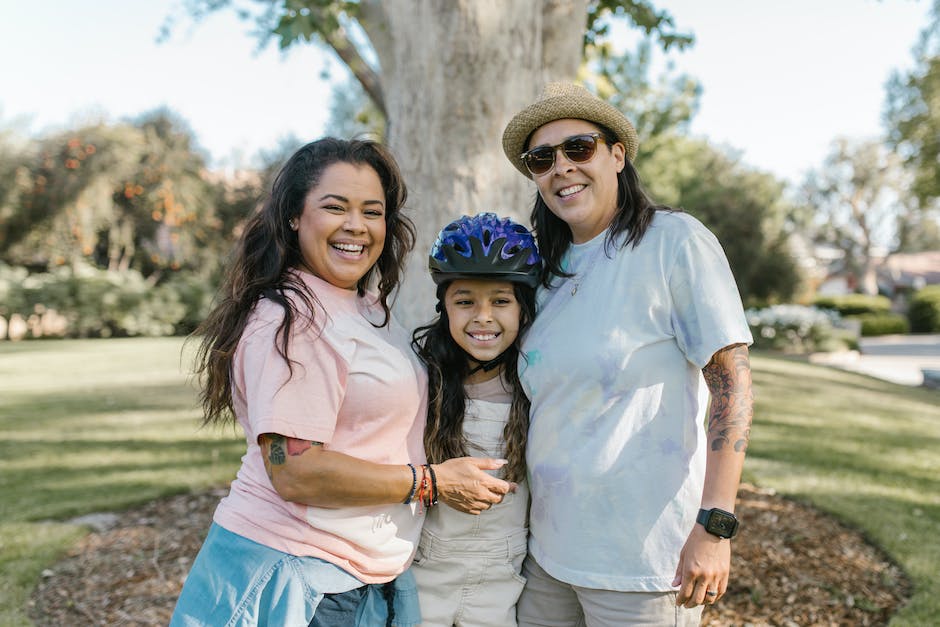Navigating the aftermath of separating from a narcissistic spouse can be challenging. It is a war often waged inside oneself, against an influence that took root, not overnight, but over time. The first step is to understand the spectacle that is narcissism – a personality disorder far more complex than simple self-absorption. This piece is not to blame, rather it seeks to assure you that the quicksand in which you are stuck is not your doing. Beyond understanding narcissism, it’s also crucial to embark on a process of emotional healing; a process that requires time, patience, and constant nurturing. As you heal emotionally, there’s a need to re-establish your independence, to rediscover and reclaim your sense of self that may have been eroded. For those with children, guiding them through this period with love, security, and a sense of normalcy is a responsibility that cannot be overstated.
Table of Contents
Understanding Narcissism
Healing Through Understanding: The Role of Narcissism Knowledge in Recovery
Narcissism – we’ve all heard about it, right? But how much do we really understand this complex personality trait and its impact on us and our loved ones? The word itself may evoke an image of a person who is self-centered, excessively vain, and exceptionally egotistical. However, it’s essential to understand that narcissism isn’t just about vanity – it’s much deeper and intricate than that. By unfolding the layers of narcissism, we can better equip ourselves to heal and move forward.
Narcissists are often painted as the villains in our society, but gaining a clear understanding of narcissism can empower us to see beyond the surface and initiate a path towards healing.
Firstly, knowing what narcissism is, fundamentally, enables us to identify narcissistic behavior. Armed with this knowledge, parents can recognize narcissistic traits in their children – or anyone around them – and act proactively. Narcissism often manifests as a lack of empathy, a constant need for admiration, or a sense of entitlement. Remember, it’s not about labeling, but rather about better understanding the behavior and how it can affect interactions.
Understanding narcissism can also create a learning opportunity for personal growth. When you delve into the depth of narcissism, you then realize the importance of empathy, compassion, and emotional maturity. Parents can utilize this knowledge to cultivate these virtues in their own lives and to teach their children these essential life skills.
Additionally, understanding narcissism can aid in setting healthy boundaries. Narcissists typically overstep personal boundaries and lack a genuine understanding of others’ needs. To navigate such instances, creating and enforcing boundaries is paramount. It could be as simple as saying “NO” to undue demands or distancing yourself from toxic situations.
Moreover, the knowledge of narcissism can guide us to seek professional help when it is necessary. At times, the actions of a narcissist can lead to emotional or psychological distress. This is when understanding the implications of narcissism can steer you towards reaching out to mental health professionals, who can guide you through healing and recovery.
Ultimately, a clear understanding of narcissism doesn’t just aid in identifying and navigating narcissistic behavior – it fosters resilience. It allows us to reshape our perspective and build healthier relationships. It encourages us to grow from what we’ve seen and experienced.
So, don’t be afraid to dig deeper into understanding narcissism! It might just be the stepping stone you need for a healthier and happier life. Knowledge is empowering, after all, and every bit of understanding we gain helps us to not only heal but to thrive as well.

Photo by simplicity on Unsplash
Emotional Healing
“Emotional Healing Strategies Following Separation from a Narcissist Spouse”
Embarking on a journey of emotional healing after ending a marital relationship with a narcissistic spouse may seem an overwhelming prospect. This path, while challenging, is fundamentally an opportunity to rediscover your strength and regain your sense of self. Let’s explore some practical and effective strategies to facilitate this emotional healing process.
One cannot underestimate the power of self-care throughout this period. Regular exercise and a wholesome diet can do wonders for both your emotional health and physical well-being. Consider integrating mindfulness practices such as meditation or yoga into your routine, as they can also be exceptionally therapeutic.
Networking and community building are essential aspects to consider. Engage with positive social groups who possess your best interests at heart. This could be anything from book clubs to hiking groups – everything that allows you to meet new people and pursue various interests, lending an engaging distraction from your healing path.
Documenting your thoughts and feelings can be wonderfully cathartic, and journaling is an excellent tool for this. Jotting down your feelings and experiences can release pent-up emotions and provide a tangible document of your healing progress, offering encouragement during challenging times.
Simultaneously, it’s important to refrain from negative self-blaming. You are not at fault for the actions of your narcissistic spouse. Practice compassion for yourself, just as you would for a friend going through similar circumstances. Remember that it’s okay to grieve and thoroughly experience your emotions, rather than set them aside.
Expanding your knowledge about narcissism can also be helpful. Elevating your understanding of the subject can further validate your experiences and feelings and make sense of past behaviors further. Consider quality books, podcasts, or documentaries on the subject that can provide comprehensive insights.
Additionally, try to redirect your focus towards goal setting, with specific emphasis on independence and autonomy. Aim for both long-term objectives, like career aspirations, and smaller immediate goals such as completing day-to-day tasks or picking up new hobbies. This serves to foster a sense of achievement and cultivates further self-confidence.
Last but not least, ensure that you have a strong support system around you. Lean on friends and family who understand the situation you’ve endured and will provide emotional support. Isolation can increase stress, so make sure to keep in touch with others through calls, messages, or even physical meetups when possible.
The journey towards emotional healing after leaving a narcissistic spouse can be a bumpy ride, indeed. Yet, with these strategies in hand and a drive towards self-improvement, it’s a path that can certainly lead back to a place of self-love, strength, and inner peace. Your resilience and courage are awe-inspiring, championing not just your healing journey, but inspiring others who might be in similar situations.

Re-establishing Independence
In the crusade towards healing after exiting a narcissistic relationship, it’s essential to underscore the role of time and acceptance in the overall process. Natural healing happens over time, it’s not an instantaneous switch but rather a progressive path on an upward trajectory. It’s important to embrace this process rather than rush it, accepting that there will be moments of setbacks before substantial strides are made.
Relying on personal strengths is vital in this healing journey. Assessing personal beliefs, interests, and values provides a solid foundation on which independence can be built post-narcissism. Realizing that one is a unique entity with a rich array of skills and talents fosters self-confidence that was perhaps eroded during the said relationship.
Rediscovering individuality can be achieved by engaging in the pursuits lost due to the relationship. It could be art, writing, music, cooking or any hobby that provides joy and a sense of fulfillment. These activities can not only serve as a distraction from distressing thoughts but also provide an outlet for self-expression, ultimately leading to a stronger sense of self.
Dissociating from harmful relationship patterns is fundamental in this stage. This involves spotting and acknowledging the toxic patterns practiced in the narcissistic relationship. With awareness comes power – the power to consciously avoid falling into similar situations in future. This effort needs to reach to the roots of earlier maladaptive behaviors, therefore challenging them may require strength and, often, external support.
Connecting with others who have had similar experiences presents a priceless lifeline. Joining support groups or online communities of survivors of narcissistic abuse can furnish a sense of solace in knowing that one is not alone in this journey. These environments promote shared experiences, wisdom and advice, each encouraging the next toward recovery and a renewed sense of self.
Education is a powerful tool, and in this case, it’s a beacon of understanding. Dive into reading self-help books, articles, and research on narcissism. The knowledge can provide validation of experiences, relief that you’re not imagining the toxicity, and footsteps that guide the route to recovery.
In the pursuit of erecting healthy emotional boundaries, it’s crucial to recognize one’s sense of self-worth. Keep reinforcing the idea that everyone deserves respect, love, and kindness. These affirmations not only bolster self-esteem but also prevent the likelihood of falling prey to similar controlling relationships in future.
Lastly, emphasize the role of positive affirmations in healing. Practice self-love through affirmations that consolidate worth, courage, and resilience. Phrases like “I am worthy of respect,” “I am capable of making my own decisions,” “I am resilient,” can be powerful-enough catalysts to ignite the process of reclaiming independence after surviving a narcissistic relationship.
Standing strong in the storm is admirable, but finding a way towards the sunshine afterward is where the triumph truly lies. It’s important to remember – it’s not just surviving, but thriving that matters.

Helping Kids Cope
Supporting a Child Affected by a Narcissistic Spouse
When a family is impacted by a narcissistic spouse and parent, it’s essential to make sure the children receive the necessary guidance and support to help them understand and deal with the situation. Navigating the complexities of relationships, emotions, and behaviors can be extremely challenging for children, and they will need adequate assistance to traverse this rocky path.
One of the initial steps in aiding the child is ensuring a safe and stable environment. This step is paramount in preventing potential harm or psychological distress the child may experience. Providing them with a space where they feel comfortable talking about their feelings and experiences can play a significant role in mitigating the fallout.
Open communication with children is highly crucial. It’s important for children to understand not just what narcissism is, but how it could change their familial dynamics. Conveying this information in child-friendly language can reinforce a sense of stability and security.
Also, build a relationship where they feel connected and validated. The relationship with the parent that provides not only love and care, but also validation helps the child grasp that their feelings and observations are valued and important. This helps in fostering healthy social and communication skills.
Within this communication stream, giving the child the tools to identify and manage emotions is equally significant. Introductory lessons in emotional intelligence, such as recognizing what they are feeling and why, can assist in giving the child a sense of control over their emotions. It can also help in normalizing their feelings and reinforcing that it’s okay to feel upset, angry, or confused.
Exercises that build resilience can be highly beneficial too. Teaching children how to turn the challenges they face into opportunities for learning and growth can cultivate resilience. Key traits such as adaptability, optimism, and problem-solving can be developed through daily challenges and healthy risk-taking.
One should not hesitate to reach out to a child psychologist or counselor if the child exhibits signs of distress or difficulty in coping with the situation. These professionals can provide much-needed insight and help the child navigate their feelings more effectively.
Don’t forget the invaluable power of a strong support network. A network of trustworthy and supportive friends, relatives, or teachers can be a bedrock of emotional support for the child. Regular, healthy interaction with these individuals can remind children that they’re not alone in their experiences and provide reassurance during tough times.
Treating the child with respect, empathy, and kindness can help immensely to model positive and respectful relationships. It also acts as a counterpoint to the negative behaviors they may be witnessing.
Finally, remember to support the child’s ongoing development and well-being. Continual reassurances of love, centrality of their interests, and the breath of life beyond the present circumstances can help them stay strong and feel confident.
We must always keep in mind that children are resilient and adaptable. With our guidance and emotional support, they can navigate these challenges and emerge stronger and more self-aware.

Steering clear of the tumultuous sea of a narcissistic relationship requires both nerve and understanding. The task at hand is not to wash away the memories and scars, but to learn from them, make peace with them, and use them to construct a better, more nurturing environment for oneself and those we’re responsible for. It is through understanding narcissism, endeavoring on emotional healing, re-establishing independence, and helping kids cope, that a path to recovery is well-paved. It’s important to remember that this journey won’t always be linear. There will be setbacks, but finding strength in vulnerability and resilience in defiance is the crux to regaining your freedom and sanctuary. It is, after all, in overcoming that we find ourselves more earnestly. Keep going, keep growing, and remember that you are more than the trials you’ve been through.

Rajan Moonbeam is a dedicated health writer with a Master of Public Health (MPH) degree. Specializing in holistic wellness and preventive care, Rajan combines scientific research with natural approaches to health, offering readers practical advice on living their healthiest life. His work is a beacon for those seeking to navigate the path to well-being with integrity and balance.

